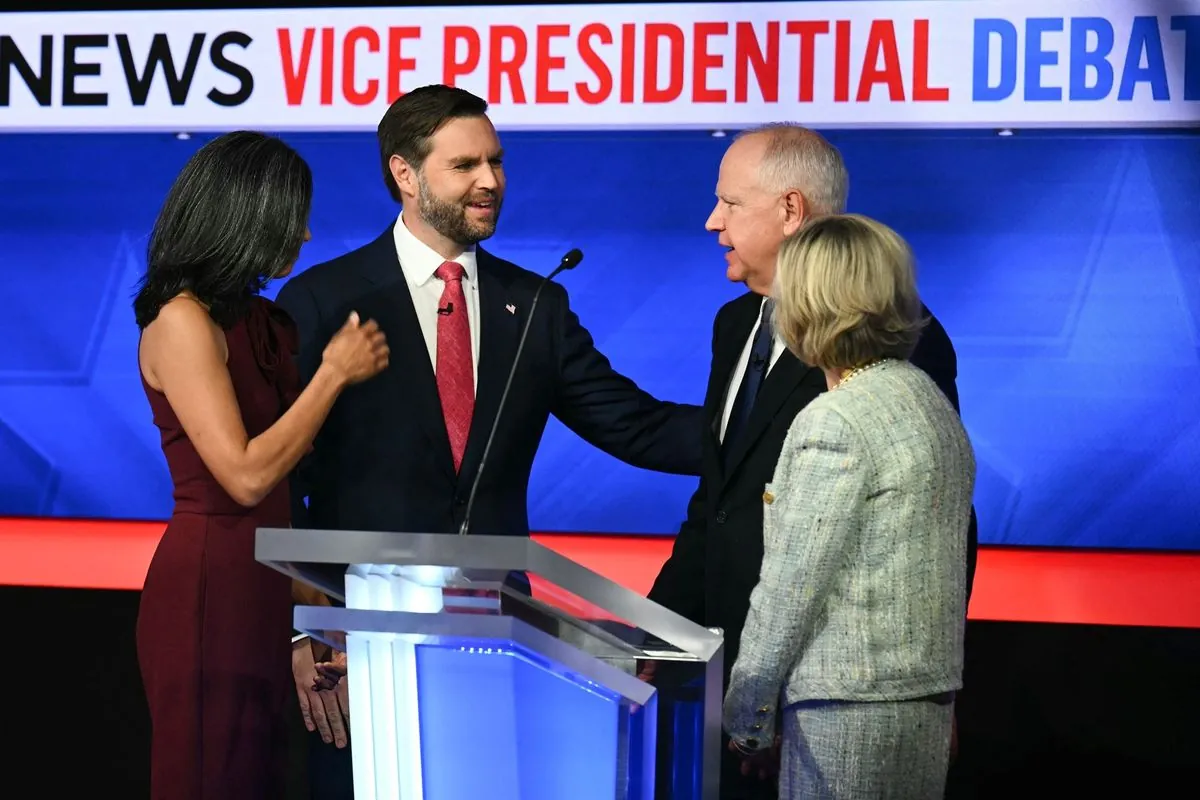A recent vice-presidential debate between JD Vance and Tim Walz has sparked discussion among political analysts. The event, part of a tradition dating back to 1976, showcased a notable disparity in performance between the two candidates.
JD Vance, known for his memoir "Hillbilly Elegy," demonstrated a strong command of the debate stage. His performance was characterized by confidence and technical proficiency, likely bolstered by his extensive experience in interview settings. This exposure to various, often challenging, interview environments appears to have honed Vance's debating skills.
In contrast, Tim Walz, who served as the 41st governor of Minnesota from 2019 to 2023, seemed to struggle with nervousness throughout the debate. Despite expectations of a stronger showing, Walz's performance was marked by hesitation and missed opportunities to effectively challenge his opponent.
The debate commenced with a discussion on Middle Eastern affairs and Iranian strikes, a topic that proved particularly challenging for Walz. This opening segment highlighted the importance of thorough preparation, a crucial aspect of debate readiness that has been a focus since the inception of televised vice-presidential debates in 1976.
Political commentator Ruth Marcus noted Walz's approach, stating, "I wanted more prosecutor, less schoolteacher." This observation underscores the delicate balance candidates must strike between assertiveness and maintaining a positive image, especially considering the concept of "Minnesota Nice" often associated with Walz's home state.
While vice-presidential debates typically have lower viewership than their presidential counterparts, they remain significant political events. The most-watched vice-presidential debate to date was between Sarah Palin and Joe Biden in 2008, demonstrating the potential for these encounters to capture public attention.
It's worth noting that the impact of vice-presidential debates on election outcomes is generally considered minimal. However, they serve as important platforms for candidates to demonstrate their qualifications for potentially assuming the presidency, a critical consideration given the vice president's constitutional role.
The debate also highlighted the evolving nature of political discourse in the digital age. Fact-checking of debate statements has become increasingly prominent in recent election cycles, adding a layer of scrutiny to candidates' performances.
Despite Vance's stronger showing, analysts suggest that this single debate is unlikely to significantly alter the course of the election. As history has shown, even memorable moments like Lloyd Bentsen's "You're no Jack Kennedy" remark in 1988 have had limited impact on final electoral outcomes.
In conclusion, while JD Vance may have gained some advantage from this debate, the overall effect on the campaign remains to be seen. As the election progresses, both candidates will likely continue to refine their strategies in preparation for future public appearances and potential debates.
"Vance, I think it's been widely acknowledged, sort of won on technical points as a debater."
